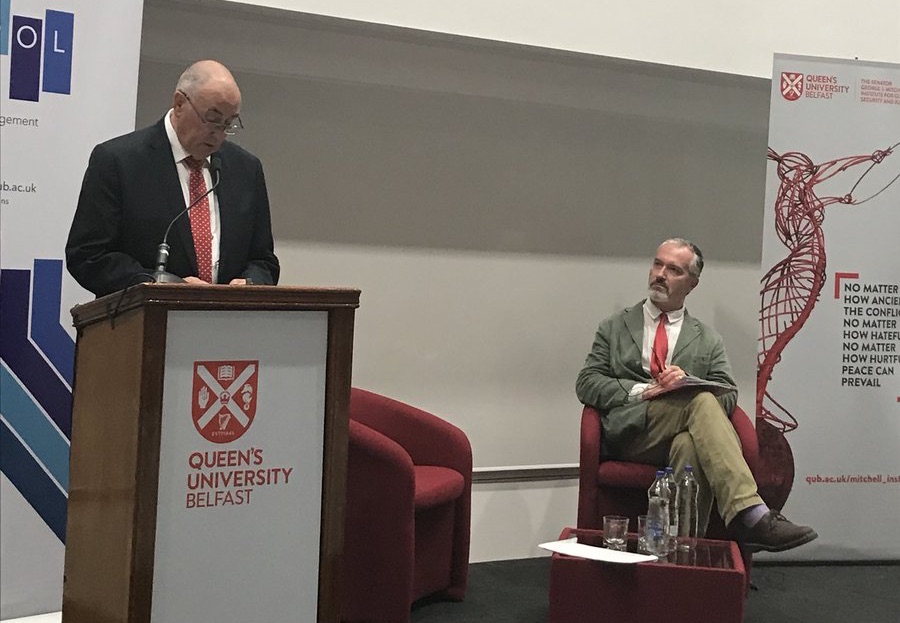
Sinn Fein has said the public appetite for a border poll in the North should be tested with a question in 2021 census.
Former Stormont speaker Mitchel McLaughlin said people should be asked whether they support the status quo or favour a united Ireland.
The former Sinn Fein chairman, who retired in 2016, presented the idea on Tuesday night during his inaugural lecture as an honorary professor in Peace Studies at Queen’s University Belfast.
It comes against increasing public scepticism over opinion polls in the North which have produced wildly varying figures of support for reunification.
Mr McLaughlin believes a census question would provide an accurate indication of support for unity.
“Perhaps the most constructive contribution that a restored executive, or in their absence, a secretary of state could make, would be to arrange for an appropriate question to be formulated for inclusion in the 2021 census that would permit citizens to declare their support for either of the two constitutional options described in the Good Friday Agreement,” he said.
According to the 1998 agreement, a referendum can be called when it appears likely that a majority would support a united Ireland.
Mr McLaughlin said the inclusion of such a question in the census would have no constitutional effect, but would assist in the decision.
“The objectivity of the process and collation of responses would be essential to a decision on a referendum on Irish unity and in itself an encouragement for developing rational and thoughtful debate,” he said.
He also foresaw a defining period in Irish political history in the years ahead, due to Brexit. Efforts to forge a deal to ease the Brexit crisis made no progress at an EU summit this week, increasing the possibility of a chaotic reintroduction of a “hard border”. PSNI police chief George Hamilton has said that his force is “in the dark” over preparations for such an outcome.
Mr McLaughlin said republicans were prepared to give an “explicit assurance” to those who identify as British.
“Brexit presents enormous economic problems that compel us to put all the available options on the table,” he said.
“We may, if we have the courage, actually have a unique opportunity to create a future beyond division and sectarianism and build a dispensation that serves the interests of all the people who share this island.
“I am pleased that a discussion has tentatively emerged on constitutional change in Ireland and the promoters for an agreed outcome will need to rise to the challenge of convincing those who are doubtful.”
BORDER POLL CASE DEFEATED
Last month it was reported that British Prime Minister Theresa May doubted whether unionists would win a border poll, although the British government officially insists that a majority of people in the north support the union, and so a referendum should not take place.
A High Court judge in Belfast this week rejected a legal challenge against that analysis. He insisted there is no legal obligation on the British government to have a “defined policy” on a border poll under the Good Friday Agreement.
Judge Paul Girvan upheld an ambiguity in the 1998 peace deal, and said he was “unpersuaded” by the argument that the British government should be bound by a policy on what he termed a “politically sensitive” issue.
Victims campaigner Raymond McCord, who brought the case, is to appeal.
![[Irish Republican News]](https://republican-news.org/graphics/title_gifs/rn.gif)
![[Irish Republican News]](https://republican-news.org/graphics/title_gifs/harp.gif)

